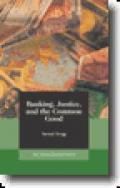


The Spring 2006 issue of Religion & Liberty is now available. The new issue focuses on the topics of hunger and poverty, especially in the developing world. As R&L explores the various aspects of poverty, it touches on issues ranging from the effectiveness of government programs to the benefits of bio-technology and from the implications of globalization to the need for a moral foundation behind the development of economics.
Our feature interview is with Tony Hall; former Democratic congressman from Ohio and U.S. Ambassador to the U.N. Agencies for Food and Agriculture in Rome. Tony Hall talks about his experiences working with international hunger and poverty relief programs and the influence that his faith has had in shaping his political priorities. Hall also talks about the role that NGOs play in solving the problems of hunger and poverty.
John Schneider, professor of religion at Calvin College in Grand Rapids, Mich., explores the more philosophical and theological implications of globalization, especially in regard to loving our neighbor. As globalization occurs, Schneider observes, the definition of “neighbor” changes. While neighbor used to be defined as people living in your immediate physical vicinity, it now includes people living thousands of miles away from you. This expansion of “neighbor” means that our responsibilities toward our neighbors also are enlarged. Schneider addresses these issues by introducing two concepts that he calls “Human Particularity” and “Multiplicity of Goods.”
The “global economy” is an often misunderstood machine. Industries that operate across borders are frequently highlighted by the media, and a skewed image of those industries is often portrayed. The cotton industry is an example. Adam Mills, a teacher of economics and government, explores the other side of the cotton industry, looking at the benefits that a textile mill in Asia can provide to people that might not have any other opportunities for work; or for the entrepreneur in Africa who sells second-hand clothing in an open-air market.
Piero Morandini, a biologist at the University of Milan, explores bio-technology and the possibilities that advances in science can provide for solving the problems of chronic hunger. Morandini looks at a proposed solution to hunger, namely that the supply exists but that there is a distribution problem, and argues that coercing distribution is a flawed, even immoral, solution. Morandini instead argues that advances in bio-tech can allow farmers in developing nations to solve their own problems by increasing their crop yeilds. When up to 80 percent of one harvest can be lost to weeds or 30 percent lost to viruses and pests, growing crops that are more resistant to these problems can have a significant impact; much more so than schemes of food-redistribution.
Rev. Robert Sirico finishes up with “The Virtues of Development.” Fr. Robert quickly summarizes the history of technological development and emphasizes the need for a strong moral foundation in future advancement and the development of global economy. Wealth can cause corruption, but so can poverty. Wealth managed in a moral way can ease poverty and allow society to flourish.
Read the newest issue of Religion & Liberty online today, or download a PDF version to read at your convenience.









